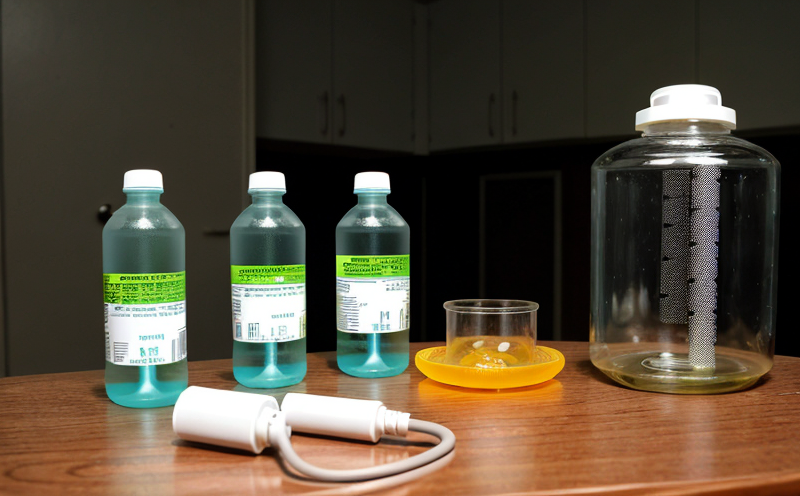ISO 13164-1 Radon in Water General Test
The ISO 13164 series of standards is designed to provide guidelines for the measurement and evaluation of radon in water. The first part, ISO 13164-1, specifically addresses the determination of radon in drinking water by means of passive sampling devices. This service is crucial for ensuring compliance with regulatory limits set forth by environmental authorities.
The process begins with the collection of samples from various sources such as municipal supplies, private wells, or other relevant locations. The samples are then transported to our laboratory under controlled conditions to minimize exposure and potential contamination. Once received, these specimens undergo rigorous quality control checks before analysis can commence.
Our team uses advanced detection equipment like scintillation detectors and liquid scintillation counters which adhere strictly to the requirements outlined in ISO 13164-1. These instruments are calibrated regularly using certified reference materials to ensure precision and accuracy. After processing, results are reported according to international standards with detailed documentation provided upon request.
The importance of this service cannot be overstated given its role in safeguarding public health and protecting the environment from harmful levels of radon exposure. By adhering closely to ISO guidelines, we provide reliable data that can inform critical decisions related to water treatment processes or potential remediation efforts when necessary.
Scope and Methodology
| Parameter | Description |
|---|---|
| Detection Limits | <10 Bq/m3 |
| Sampling Frequency | Quarterly for monitoring purposes |
| Sample Volume | At least 2 liters per sample |
| Storage Conditions | -18°C to +4°C refrigerator |
The methodology for performing the ISO 13164-1 radon in water general test involves several key steps. Firstly, passive samplers must be deployed according to specified protocols ensuring they capture accurate measurements over a defined period. Once collected, these devices are returned to our laboratory where they undergo thorough examination using appropriate analytical techniques.
It's important to note that this approach allows for long-term continuous monitoring which helps identify trends and variations in radon concentration levels within different water sources. This information is invaluable when assessing risks associated with prolonged exposure to elevated concentrations of radon gas.
Eurolab Advantages
EuroLab stands out among other laboratories due to our commitment to excellence in every aspect of water quality testing. Our state-of-the-art facilities combined with experienced professionals ensure reliable results that are both accurate and reproducible.
- Accreditation: Fully accredited by ISO/IEC 17025, guaranteeing highest standards
- Technological Sophistication: Utilizes cutting-edge technology for precise measurements
- Experienced Personnel: Skilled technicians with extensive knowledge in water analysis
- Compliance: Ensures strict adherence to all relevant regulations and guidelines
We pride ourselves on delivering comprehensive services tailored specifically towards meeting your unique needs while maintaining the highest levels of integrity throughout our operations.
Quality and Reliability Assurance
- Calibration: Instruments calibrated annually with certified reference materials
- Data Validation: Multiple checks performed during data collection process
- Traceability: Results traceable back to primary standards set by national laboratories
- Reporting: Detailed reports issued including raw data and interpretation
We take pride in our commitment to quality assurance practices which include regular audits, continuous improvement initiatives, and adherence to strict protocols designed to eliminate errors and ensure accuracy.





